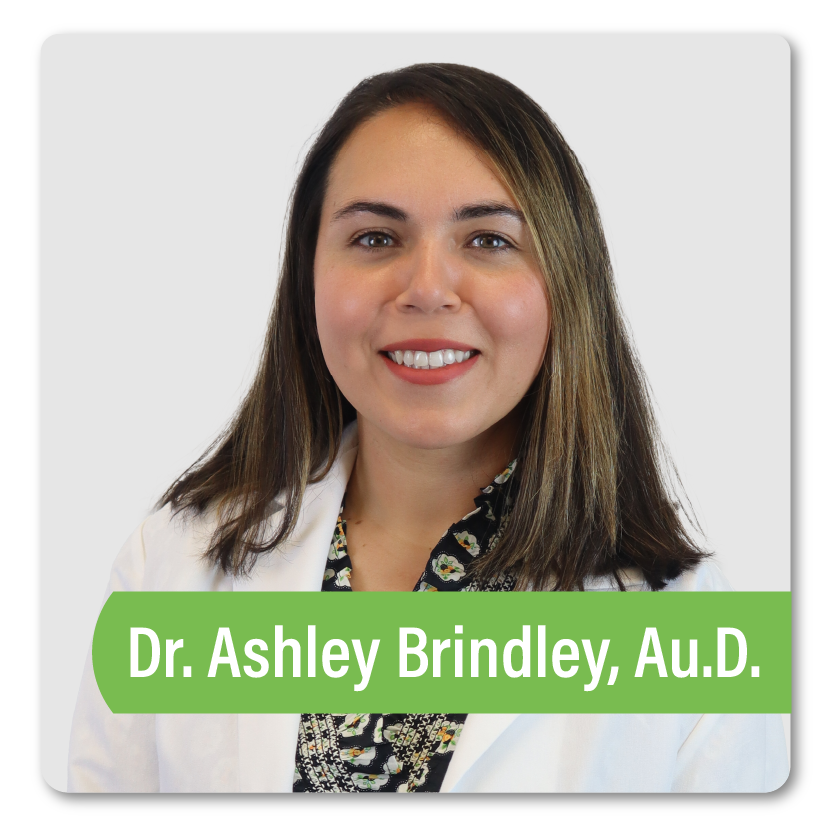
December 3, 2025
5 Ways to Help Keep Your Brain Healthy
According to the Alzheimer’s Association, Alzheimer’s disease is the most common form of dementia, a general term for memory loss and cognitive decline severe enough to interfere with daily life.
Although there isn’t a cure for Alzheimer’s disease yet, there are ways to help reduce your risk of developing Alzheimer’s disease. In honor of National Alzheimer’s Disease Awareness Month, here are five ways to help keep your mind healthy.
Tip #1: Preserve Your Hearing
“Hearing loss and dementia can be connected,” says Coryell Health audiologist Dr. Ashley Brindley. “When you have trouble hearing, it makes your brain work even harder to process sounds and fill in any information gaps. It takes cognitive resources away from the parts of your brain devoted to storing and recalling memories.”
Damaged hair cells don’t grow back, so if you’re experiencing hearing loss, it’s essential to preserve what hearing you do have. Hearing aids improve cognitive function and may help slow the onset of dementia.
Dr. Brindley provides hearing aid fittings, baseline hearing evaluations and treatment for tinnitus (ringing in the ears) at Coryell Health’s Gatesville clinic in Building 1. To schedule an appointment with Dr. Brindley, call (254) 865-2166.

Tip #2: Look After Your Heart
To quote the American Heart Association, “what’s good for the heart is good for the brain.” In 2022, the American Heart Association reported that coronary heart disease led to a 40% increased risk of dementia, cognitive impairment or general cognitive decline.
“Your heart directly affects your cognitive functioning,” says Coryell Health cardiologist Dr. Brian Walton. “A healthy heart allows oxygen and nutrients to flow to your brain. Risk factors like diabetes, high blood pressure and high cholesterol are risk factors for both heart disease and dementia.”
To help manage these risk factors for both cardiovascular disease and Alzheimer’s disease, Coryell Health recommends:
- Exercising at least 2.5 hours a week
- Maintaining a diet of fish, poultry, vegetables, fruit, nuts, beans and whole grains
- Consuming little to no red meat, sweets, butter and sugary drinks
- Quitting smoking
To schedule an appointment with a Coryell Health cardiologist, call (254) 865-2166.
Tip #3: Avoid Head Trauma
If you sustain a traumatic brain injury, it may increase your risk of developing Alzheimer’s disease. According to the Alzheimer’s Association, falls are the leading cause of traumatic brain injuries, and approximately one in four Americans aged 65 and over reports a fall each year.
Fall-proofing your home by clearing clutter from the floor, improving your home’s lighting and securing or removing loose rugs can help decrease your risk of falling. Get your vision checked regularly and discuss any side effects from your medications with your doctor to also help prevent a traumatic brain injury and dementia.
Other ways to decrease the risk of sustaining a traumatic brain injury include:
- Always wearing a helmet and other protective gear when riding a bike, skateboarding, skiing or participating in a contact sport
- Always wearing a seatbelt
- Regularly maintaining your vehicle
Tip #4: Stay Social
“Socializing engages the brain and promotes better cognition,” says Dr. Diedra Wuenschel, Coryell Health family medicine physician and Coryell County medical authority. “It strengthens your neural pathways to fight off cognitive decline. It also stimulates the parts of your brain associated with attention, memory and problem solving.”
According to Harvard Health, studies show that older adults who regularly socialize have a better working memory, processing speed and verbal fluency than those who don’t regularly socialize.

It can be intimidating, but here are a few easy ways to be more social:
- Call or FaceTime friends and family members
- Get to know your neighbors
- Join a club
- Volunteer within your community
Tip #5: Keep Your Mind Sharp
According to the Alzheimer’s Association, staying mentally active can help better shield you against injury or brain disease and may help lower your risk of developing Alzheimer’s disease and other forms of dementia.
“When you use your brain in new and challenging ways, it can help build new connections between your brain cells,” Dr. Diedra Wuenschel says. “Even if it’s just doing the daily Wordle or crossword, engaging your brain for just a few minutes each day can help.”
“In my experience, the residents in our care who have family visiting regularly or who participate in our daily activities tend to retain more information and maintain clearer memories. I’ve also seen that spending time with people they were close to—especially longtime friends—often gives residents a noticeable cognitive boost,” said Coryell Health RehabLiving at the Meadows Administrator Maranda May, LNFA.
Here are a few more easy ways to help engage your brain:
- Trying a new art form
- Playing an instrument
- Learning a new language
- Playing strategy games
Caring for your brain is one of the best investments you can make for your and your family’s future. By sticking to simple habits like the five listed above, you can improve your cognitive functioning and strengthen your brain over time.
If you have a loved one currently living with Alzheimer’s disease or another form of dementia, Coryell Health’s RehabLiving at the Meadows provides compassionate, personalized memory care in a supportive environment. Thanks to a recent grant, we’ll also be providing specialized dementia care training for every member of our RehabLiving team. Call (254) 404-2500 to learn more about RehabLiving at the Meadows and our memory care program.
Meet the Doctors



Resources
- What is Alzheimer’s Disease? (Alzheimer’s Association)
- Can Alzheimer’s Disease Be Prevented? (Alzheimer’s Association)
- Hearing Loss and the Dementia Connection (Johns Hopkins University)
- Hearing Aids May Slow Dementia Onset (Johns Hopkins University)
- Heart Health is Brain Health (American Brain Foundation)
- What’s Good for the Heart is Good for the Brain (American Heart Association)
- Traumatic Brain Injury (Alzheimer’s Association)
- Traumatic Brain Injury and Alzheimer’s Disease: A Shared Neurovascular Hypothesis (National Institutes of Health)
- Get Back Your Social Life to Boost Thinking, Memory, and Health (Harvard Health)
- Challenge Your Mind (Alzheimer’s Association)
 Skip to content
Skip to content
